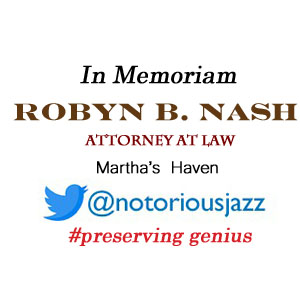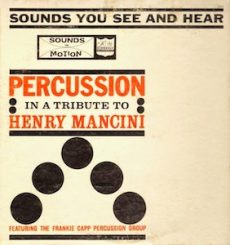
Daily Dose Of Jazz…
Jimmy Henderson was born on May 20, 1921 in Wichita Falls, Texas and began studying piano at age six, picking up the trombone a few years later. By the time he was thirteen he had joined a musicians’ union and was first chair at the Wichita Falls Symphony Orchestra.
Winning several trombone competitions by age fourteen, Jimmy started his own orchestra while still in his teens, in addition to studying at the Cincinnati Conservatory of Music. Henderson toured with the big bands of Hal McIntyre, Jimmy Dorsey, and Tommy Dorsey.
In 1954, he moved to Los Angeles, California where he steadily worked as a session musician for some 20 years. Among his credits in the studios was the soundtrack for Bonanza. From 1957 to 1960, he was also a member of Lawrence Welk’s orchestra in which he appeared weekly on the Maestro’s television show.
He led his own orchestra for fifteen years, and was the musical director for the Emmy Awards, Television Academy Honors, and Directors Guild of America Awards In the 1970s, he led the Glenn Miller Orchestra ghost band before retiring in 1980.
Trombonist and bandleader Jimmy Henderson died at the age of 77 on June 10, 1998 in New York City, New York.
More Posts: bandleader,history,instrumental,jazz,music,trombone
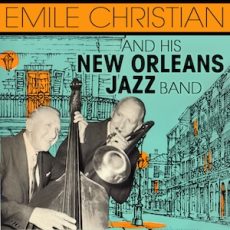
Daily Dose Of Jazz…
Emile Joseph Christian born April 20, 1895 in the Bywater neighborhood of New Orleans, Louisiana, was the younger brother of noted cornetist and bandleader Frank Christian. He played both cornet and trombone with the Papa Jack Laine bands. He went to Chicago, Illinois in late 1917 to play trombone with the Bert Kelly Jass Band. The following year he moved to New York City, replacing Eddie Edwards in the Original Dixieland Jass Band, touring England and making his first recordings with this band.
After a brief time in the Original Memphis Five, he returned to Europe and from 1924 into the 1930s, he played bass and trombone with various jazz bands. In Berlin, Germany he recorded, in Stockholm, Sweden he recorded with Leon Abbey’s band. In Paris, Nice and Aix-les-Bain, France he played with Tom Waltham’s Ad-Libs. In 1935 he played with Benny Peyton’s Jazz Kings in Switzerland.
Christian played in both Black and White bands in Europe and India before returning to the United States after the outbreak of World War II. The 1950s saw him moving back to New Orleans, where he played with the bands of Leon Prima, Santo Pecora, and Sharkey Bonano and his own band. In 1957 he toured with the Louis Prima Band and continued playing in New Orleans into 1969.
Trombonist and cornetist Emile Christian, who wrote a number of tunes and in his later years mostly playing string bass, died on December 3, 1973 in New Orleans at the age of 78.
More Posts: cornet,history,instrumental,jazz,music,string bass,trombone
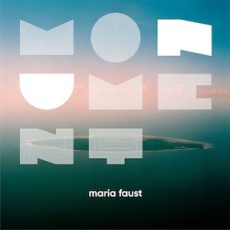
Daily Dose Of Jazz…
Maria Faust was born on April 18, 1979 in Kuressaare,, Estonia. Growing up under the Communist regime she was classically educated, and at the conservatory there, she didn’t feel that there was room for her, musically. Yearning for something different in Tallinn, jazz and improvisational music took hold of her, but in order to develop further, she had to leave the country. With the help of the Danish Cultural Institute, she came to the Southern Danish Music Conservatory. Even in her new surroundings, she felt she did not fit into the world of jazz.
She plays and composes in non-traditional ways, and her big breakthrough came with her album, Sacrum Facere, which is Latin for human sacrifice. It was inspired by the culture of deported orthodox Russians. With collected work songs, hymns, and lullabies she merged the material with classical music and free improvisation. The album received universally positive reviews, and received two Danish Music Awards in 2014 for Jazz Composer of the Year and Jazz Crossover Release of the Year.
She has worked with John Parish and Mark Howard. She tours western Europe, the Balkan Peninsula, South America, China, and Russia. Saxophonist Maria Faust, who has recorded nine albums as a leader, continues to push the boundaries of music.
More Posts: bandleader,bass,cornet,history,instrumental,jazz,music,trombone
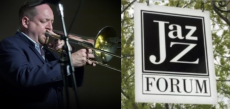
STEVE DAVIS
Featuring voclaist/actress Abena Koomson~Davis, who has starred in the Broadway production of Fela!, and for over 15 years, Abena has been the lead vocalist of the funk rock band Van Davis. She is the musical director for the Resistance Revival Chorus, and her song “Joy in Resistance” is featured on their debut album, entitled “This Joy.”
Abena’s debut jazz album on WJ3 Records, entitled “Where is Love” features time-honored standards and original compositions co-written with her husband, acclaimed jazz trombonist Steve Davis.
The late trumpet giant Freddie Hubbard called Steve Davis, “one of the great trombone players in the world,” and whether on record or on stage, “Stevie D” and his group always produce compelling, enjoyable music.
Steve’s vocalist wife Abena is featured on this gig as she is on his newest all-star album, We See, his 21st as a leader. A protégé of both Jackie McLean and Art Blakey, Davis is perhaps his generation’s leading trombonist.
Tickets: $35.00 +fee $2.75
More Posts: adventure,bandleader,club,genius,instrumental,jazz,music,preserving,travel,trombone

Daily Dose Of Jazz…
Bill Ohashi was born on March 29, 1949 in New York City, New York. His formative years were spent learning at Julliard, Mannes College, U. of PA, Berkley School of Music, and bandstands in NYC, New England and the southern corridor. He was making the jam session rounds in the city with jazz legends Kenny Dorham, Roy Eldridge, Charlie Mingus, Jack DeJohnette, Joe Henderson, Jaki Bayard, Carla Bley, George Cables, Lenny White, Billie Cobham and Art Blakey’s Messengers, among others.
Bill’s early work was with Willie Colon, Eddie Palmieri, Larry Harlow, Machito, Slide Hampton, Chuck Israels, Chico O’Farrill, Joe Farrell, Elvin Jones, Bruce Fowler, Ray Charle’s Big Band, Thad Jones-Mel Lewis Jazz Orchestra, Charlie Mingus, Gil Evans, as well as Paul Butterfield Blues Band, Eddie Kendricks & The Temptations, Franki Valli & The Four Seasons, Marvin Gaye, The Spinners, Aretha Franklin, The Four Tops, Jay & the Americans, Yoko Ono, The O’Jays & Stevie Wonder.
After a brief to move to the west coast and a short hiatus from playing, the legendary Ray Charles wisely gave Bill the opportunity to join his band on the road for about a year, bringing Bill back into the working music scene; Bill subsequently toured Europe three times with Lionel Hampton, playing around NYC and began his own record label, EAR Records, Inc.
As an educator he taught at NYC’s Third St. Music School, Henry St. Settlement, Boy’s Harbor, New England Conservatory, Metropolitan School of Music and others. Trombonist Bill Ohashi, who subs on Saturday Night Live, continues to perform and record.
More Posts: bandleader,educator,history,instrumental,jazz,music,trombone



